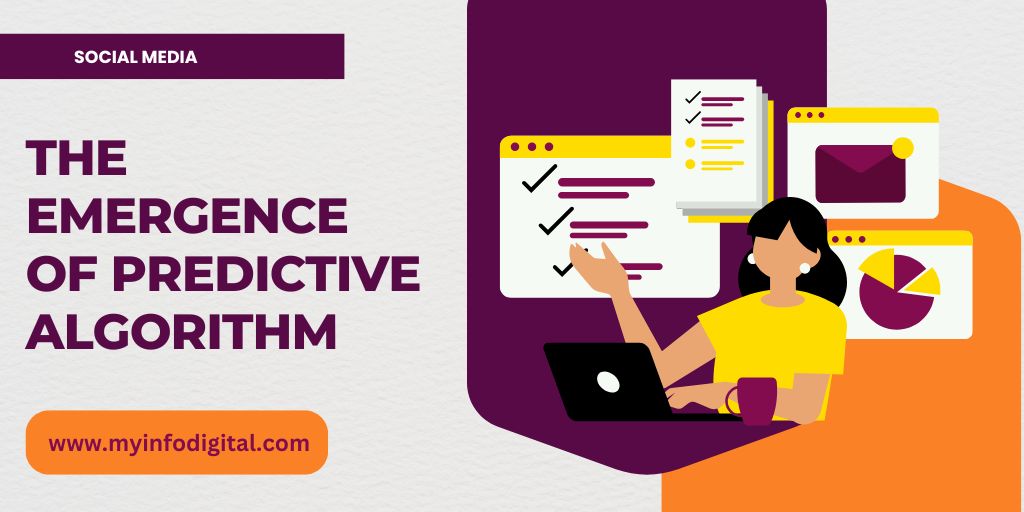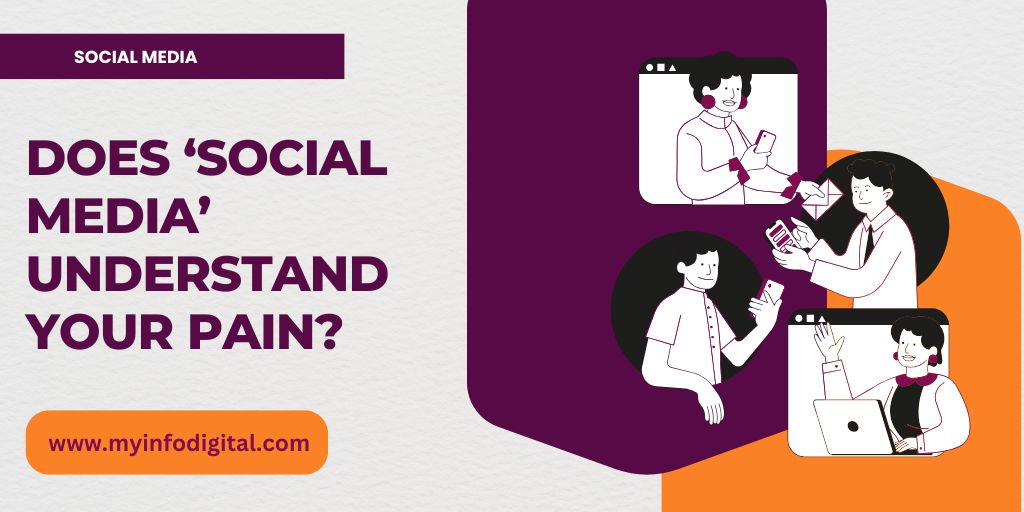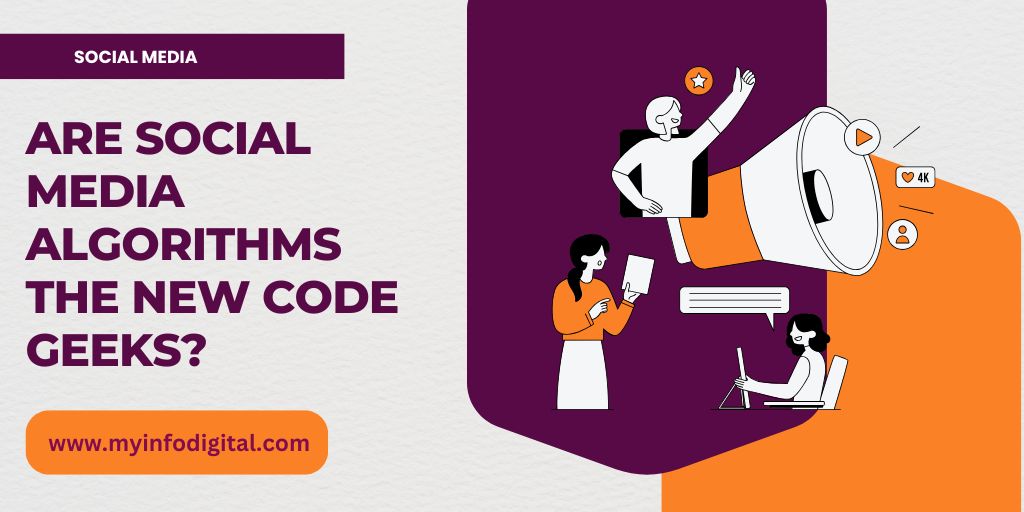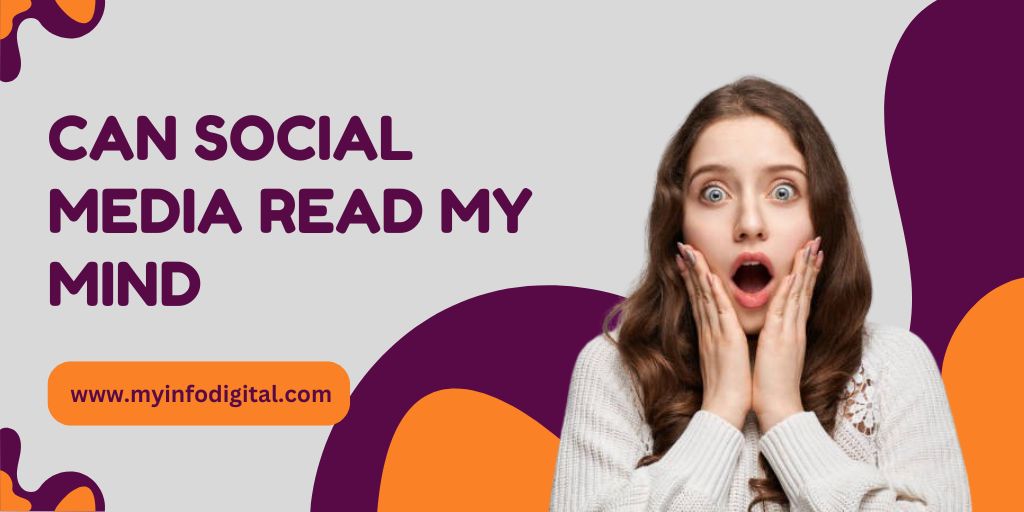Can Social Media Read My Mind, Scales and Fears? Demystifying the Future of Forecasting
Social media feels so instinctive in today’s technological world. You have a passing fancy about a product, you turn your head away for a minute and the next thing you know the product is being advertised to you on your social media feed as if the platform could feel it. This phenomenon raises a chilling question: Do social media platforms know and can read? Well, unfortunately, there isn’t a simple answer to that question. But how does this connected web of people, technology, psychology, and predictive algorithms give the illusion that social media does know you better than you know yourself?
The Illusion of Mind-Reading: But how much do they know about their users, and how deep do they want this digital relationship to go?
First, let’s address the primary question: is social media capable of reading minds out there? No. Facebook, Twitter, Linked, and any other social media platform cannot predict the future. But they can appear to know what we are thinking most of the time. This illusion derives from the fact that they know too much about people’s behaviour due to a vast amount of data. Facebook, Instagram, and Twitter are not just about what you like, share, or comment on, they also follow your post time, the type of ads you click on, and the time of the day when you are most active. The result? A detailed analytical model of oneself, tailored to the point where a person’s next idea can be easily foreseen – or at least approximated.
Today’s social media titans have come such a long way perfecting their predictive algorithms that they feel like they can anticipate your wants, actions, and passions. The set of algorithms is made as hyper-intuitive as possible – learning hundreds of thousands of aspects of reality and using statistical predictions to make almost telepathic levels of guesses.
The Emergence of Predictive Social Media Algorithm

These seem to read the mind and are based on predictive algorithms that run in the background. Currently, social media firms get to decide your interactions and build a profile that becomes more precise with time. Every ‘hello’, every click performed and every comment left assist feed an artificial intelligence (AI) model that can help analyse patterns of user behaviour. Another issue is that the technology itself relies on the analysis of historical data to predict what you might find interesting. For instance, suppose you are interested in travel they shall keep encountering vacation advertisements and airline promotions.
Machine learning and natural language processing allow clients to understand not only what you like but how you interact. Did you share a post quickly? Or did you read it, stop to think, and put forth a comment? The small interactions created by its users give preferences and tendencies that its users have towards behaving in certain ways which make them seem omniscient in every sense of the word.
Behavioural Targeting: In what way does it look like the Advertisers are waiting for you to make your decision?
This lets you ponder, how it feels that it is as if the ads are listening to your conversation. Here is where it gets a little grey. Advertisers provide requirements to social media companies with which behavioural targeting is used to develop ad campaigns. There is no covert recording process through a microphone capturing all that one says, but algorithms of various social networking platforms take into account one’s interactions, recent history, and even keywords in posts they interact with. From this practice, platforms can present to the user highly relevant adverts that may be in line with their current thoughts or events.
Example: The last post you came across was related to fitness. Within days you may receive a notification for a new model of sport wear that is on the market. Of course, it may appear to be merely a fortunate chance, but it is undeniably the result of accurately planned scientific research.
More alarmingly, some people have suggested that for example, social media firms might know users better than friends or even family once there is adequate data. For instance, if you tag people, and share posts about healthy food, then the algorithm will not blink an eye to suggest health products, supplements and recipes to your feed.
The Role of Big Data: Why Social Media Retrieved Huge Amount of Data
Big Data, which is the vast amount of information derived from billions of users drives the reliability of these algorithms. Social media platforms harvest everything, including the location, browser history, the actual time one normally logs into the platform, and many other things. Each time you read, share, or even comment on a post, you provide input into this sea of information that helps companies develop incredibly accurate user-interest profiles.
In addition with Big Data, the system can learn from millions of similar users and improve the inference and pattern. You are not trying to win over a machine learning model created from your data but a system designed for users like you with similar habits, ages, and interests.
Does ‘Social Media’ Understand Your Pain?

There is a seemingly endless story stating that social media apps are eavesdropping on you through your phone’s microphone. This has been refuted by every social media company, but such rumours keep recurring. Why? Because predictive targeting feels that accurate. Even when recent conversation topics are very similar to the topics of the ads that trigger them, there is a sceptical temptation to think that something as straightforward as listening has to have taken place. Nevertheless, due to data analytics and predictive algorithms, not live recordings, are the basis of social media communication, which explains it. The “listening” myth remains alive as the algorithms are highly effective at prognosis given the data found on the Web.
Privacy Concerns: What Social Media Doesn’t Get about Your Personal Life?
The very nature of comprehensiveness regarding data collection is also likely to trigger more reasonable privacy concerns. If platforms know this much about you, where is the line? And do these platforms respect it? That is the pressure is rising on different social media platforms as governments and regulatory authorities demand answers to their collection methods. Nonetheless, building upon the results that have been presented, platforms, such as Facebook as well as Instagram are attempting to be more transparent, offering the options to manage ad preferences to limit the capability of data sharing to an extent.
Nonetheless, sceptics maintain that even here the offered transparency is at best cosmetic. A user may choose which ads he or she wants to see, yet the information or data used to come up with those ads is closely held. They go on learning even if they are not processing the word input in the literal sense of the word you set out.
Cognitive and Psychological Profiling: Predicting Your Emotions
Social media also uses cognitive psychological concepts and appeals to emotions to create user experiences. The algorithms are learning about your behaviour but also about your interactions and emotional reactions to the content. Any smiley face, a “like” or even an angry face aids the algorithm in its capacity to monitor your moods and filter content for you. For example, if you tend to comment or like family-related posts, at the time when the algorithm thinks you might need uplifting – it is going to show you more of it.
And here begins how social media begins to guess the feeling that one needs, by serving up a feed that not only caters to your informative needs but your psychology as well. This understanding in turn assists in boosting engagement, thus making the feed feel more like it is being curated to the user, or even prescriptive.
Are Your Decisions Affected by Social Media?
Ideas such as the “filter bubbles” and the “echo chambers” demonstrate how social media makes it easier for you to find ideas/products that match your beliefs. The algorithms then rewrite these choices over time and therefore are rewiring your opinion. This cycle of targeted content generates a loop of only seeing examples that match certain topics, shaping your beliefs and choices ever so slightly.
For instance, if you regularly consume content regarding environmentalism, the algorithm will serve even more of the same content, enhancing the views and possibly altering the subsequent lifestyles. This sort of influence can appear to be very similar to mind control, for it will often result in decisions that appear as a logical progression from your interests.
Are Social Media Algorithms the New Code Geeks?

A commonly asked trial of sociable media is that they have become very accurate when it comes to algorithms, making the question of ethics inevitable. If platforms can calculate your next action should they be allowed to control it? The executives of social media firms argue that the ultimate aim is always to create engagement and never to deceive. However, opponents claim that there is no clear demarcation between the two forms of abuse. Recommendation systems are technically slippery in enabling a distinction between interpreting patients’ needs and suggesting favourable patterns of behaviour, hence raising issues of free agency and autonomy among users.
This is something that people should wonder if social media companies should have access to such personal information. Who their friend is or what their favourite colour is might be some disturbing news, in a completely different league is if one knows or ‘can influence’ the chosen course of action or decision. Here again, others may argue that people have the choice to log into these platforms or not, what is more subtle is nearly imperceptible yet powerful is the mechanism of algorithmic control.
Conclusion: Are social media trying to read our minds?
Thus, can social media tell you what you are going to say next? Not exactly. However, there can be only a thin line between mind reading and using technology for prediction. While Facebook and Instagram do not know what you are thinking, with the amassing of such large data sets they can predict it. Social networking websites are a false view of telepathy which practices high mathematics, psychological modelling and behavioural ad tracking and therefore it is more heuristic than real.
Finally, it brings questions related to the technology but also privacy, ethics and control. Over time, social media algorithms change, and the user cannot stay oblivious that their data is being utilised this way. Even though social media is not making your mind read, it is helping shape your mind in some ways and providing a very personal experience. So the next time you are presented with an advertisement that feels like it was plucked from your mind, it wasn’t magic at work. It was data.

